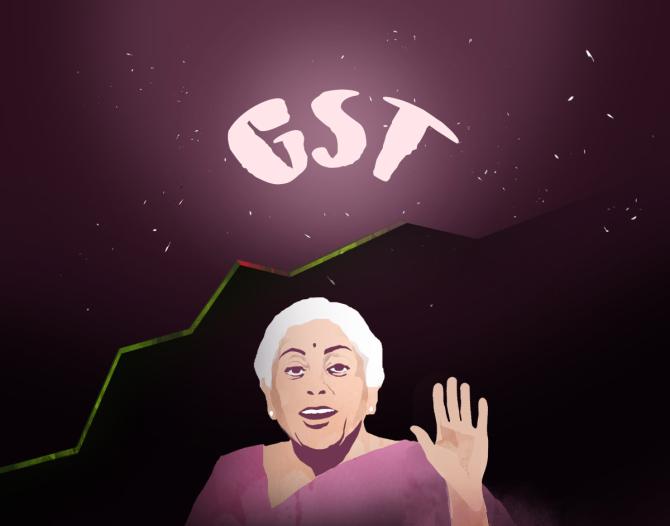The GST Council on Saturday clarified that guarantees provided by corporate to their subsidiaries will attract an 18 per cent GST, while no tax will be levied if a personal guarantee is given by a director to the company.

The council, chaired by Union Finance Minister Nirmala Sitharaman and comprising state ministers, also cut the GST rate on molasses to 5 per cent from 28 per cent.
It also ceded the right to tax Extra Neutral Alcohol (raw product for making alcohol for human consumption) to the states.
Accordingly, ENA used for human consumption will be exempt from Goods and Services Tax (GST), while ENA for industrial use will be taxed at 18 per cent.
Briefing reporters after the 52nd GST council meeting, Sitharaman said the reduction in GST on molasses will benefit sugarcane farmers and enable their dues to be cleared faster because more money will be left in the hands of the mills.
"The council and we all feel that it will also lead to a reduction in the cost of manufacturing cattle feed, which will be a major development," she said.
Revenue secretary Sanjay Malhotra said the council has decided that when the corporate guarantee is given by a director to a company, then the value of service will be deemed to be zero and hence, no GST will be applicable.
"When a corporate guarantee is given by a company to its subsidiary company, then it will be deemed that the value is 1 per cent of the corporate guarantee.
"So, it will attract GST at 18 per cent on 1 per cent of the total amount guaranteed by the parent company," Malhotra said.
The GST Council also decided to levy a lower 5 per cent tax on millet-based flour when sold in pre-packaged and labelled form.
Flour, containing at least 70 per cent millets, will attract zero per cent GST if sold loose and 5 per cent if sold pre-packaged and labelled.
The council also decided to cap the maximum age of GST Appellate Tribunal (GSTAT) president and members.
The GSTAT President will have a maximum age cap of 70 years, while the limit for members will be 67 years.
This is a change from the earlier age limit of 67 and 65 years, respectively, for the GSTAT President and members.











 © 2025
© 2025